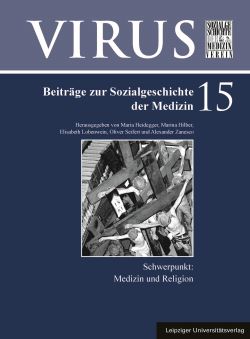
VIRUS Band 15, pp. 017-033, 2020/07/22
Schwerpunkt: Medizin und Religion

Al-Fārābi is a central figure of political philosophy within the Arabic-Islamic context.Remarkably, the analogy between medicine and politics, the ideal ruler and physician appears repeatedly in his writings, particularly in Fuṣūl Muntaza‛a (“Selected Aphorisms”). The exact relation between medicine, politics and religion in this text has hardly been analysed so far. This article contributes to closing this gap. After a short introduction to al-Fārābi’s biography the article offers an overview of the basic contents and the structure of the “Selected Aphorisms”. The main part analyses the analogies between medicine and politics, the physician and the ruler with a special focus on the Islamic context of the “Selected Aphorisms”. The paper shows that al-Fārābi depicts the ideal ruler as the guardian of the highest virtues and the guarantee of the state’s happiness. He deliberately uses the basic concepts of Galenic medicine for drafting a short vademecum of and for the ideal ruler within his specific historical andreligious context.
Keywords: Arabic-Islamic philosophy, history of philosophy, al-Fārābi, political philosophy, „Selected Aphorisms“, theory of sovereignty